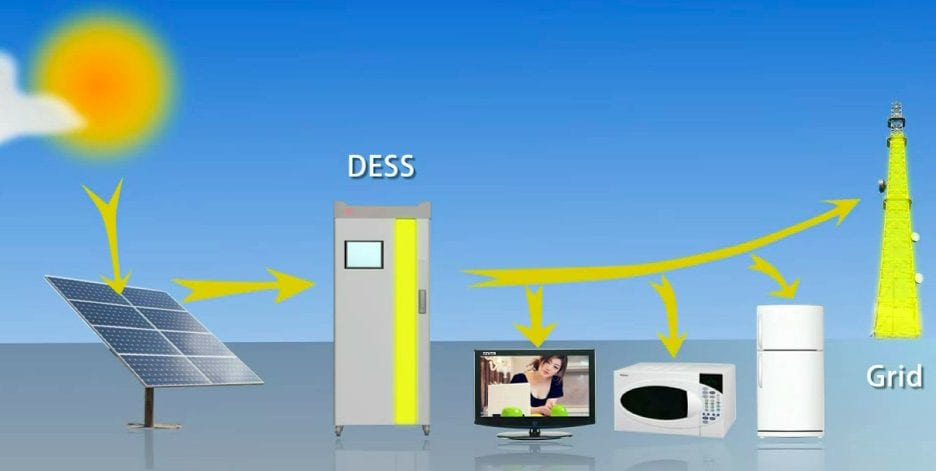BYD, a Chinese electric car manufacturer backed by Warren Buffett, has decided to enter the energy storage market in Australia, saying there is large potential for the technology in Australian homes.
BYD has signed a distribution agreement with Australian company Fe Batteries for its home energy storage system called the DESS, as well as for its solar PV, LED lighting and solar street lamp products.
The energy storage market is being described as the “next big thing” in Australia, with installers and solar companies across the country reporting massive increase in inquiries.
BYD said the recent decrease of the various feed in tariffs across Australia, and continuing rises in electricity prices meant Australian householders installing Solar PV on their homes or business were looking to use storage systems.
This enabled them to store the solar energy generated from their roof for later re-use rather than purchasing electricity from the grid or to export their excess energy to their local grid and benefit from their local FIT.
The DESS system – which comes in a 3kW/8kWh single-phase system and 9kW/8kWh three-phase system – allows existing or newly installed solar PV systems with battery storage seamlessly through a inverter and battery storage module to their local grid. There is also an off-grid home energy system.
Ian Goldfinch, business director of Fe Batteries, said Australians had access to abundant sunshine, are environmentally aware, and interested in practical ways to save money on their electricity bills.
“What has been needed is technology to support home and business energy storage systems,” he said.
BYD manufactures electric vehicles and electric buses in China and is ranked as the fastest growing Chinese automotive and green energy technology company..
Buffett bought 10 per cent of BYD in 2009 for $230 million, and appears to have at least trebled the value of his investment. It remains the company’s second largest shareholder.










